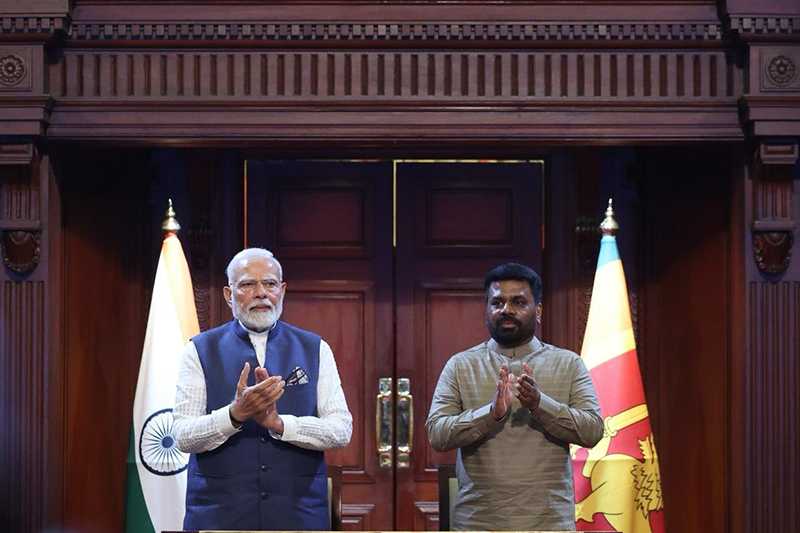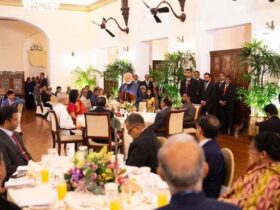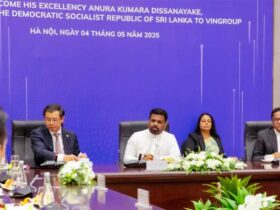Three key development projects, supported by the Government of India, were officially inaugurated yesterday (05) in Sri Lanka in conjunction with the state visit of Indian Prime Minister Narendra Modi.
The ceremonies were held virtually, with President Anura Kumara Dissanayake and Prime Minister Modi participating following their official meeting at the Presidential Secretariat.
These projects mark a significant milestone in strengthening Indo-Lanka relations under the shared vision of “Friendship of Centuries, Commitment to a Prosperous Future.”
The inaugurated projects include:
1.Sampur Solar Power Plant
Construction has commenced on the 50 MW Sampur Solar Power Plant, part of the North-East Renewable Energy Zone under Sri Lanka’s Long-Term Power Generation Expansion Plan. Developed by Trincomalee Electricity Company Limited—a joint venture between India’s NTPC Limited and the Ceylon Electricity Board (CEB)—the project spans 500 acres and employs advanced N-type TOPCon solar technology. Phase one will contribute 50 MW to the national grid, with phase two planned for 2027. The plant is expected to reduce annual carbon dioxide emissions by approximately 20,000 tons, enhancing energy security and supporting Sri Lanka’s transition to renewable energy.
2.Dambulla Agricultural Storage Complex
This state-of-the-art cold storage facility, with a 5,000 metric ton capacity, aims to reduce post-harvest losses by up to 40%, stabilize agricultural product prices, and ensure the availability of quality food. Featuring six chambers designed for climate-specific crop storage research, it is the first facility of its kind in the country. The Rs. 524 million project was jointly funded by the Indian Government (Rs. 300 million grant) and the Sri Lankan Government (Rs. 224 million).
3.Religious Places Rooftop Solar Panel Project
Aiming to promote sustainability and interfaith unity, this initiative will see the installation of 5 kW solar panel systems on the rooftops of 5,000 religious sites across all 25 districts, including Buddhist, Hindu, Muslim, and Christian places of worship. Backed by a $17 million investment from India, the project is expected to add 25 MW of solar power to the national grid. It is being jointly implemented by the CEB, Sri Lanka Sustainable Energy Authority, and Ceylon Electricity Company.
These projects not only highlight the deepening of Indo-Sri Lankan ties but also emphasize both nations’ commitment to renewable energy, food security, and sustainable development.









Leave a Reply